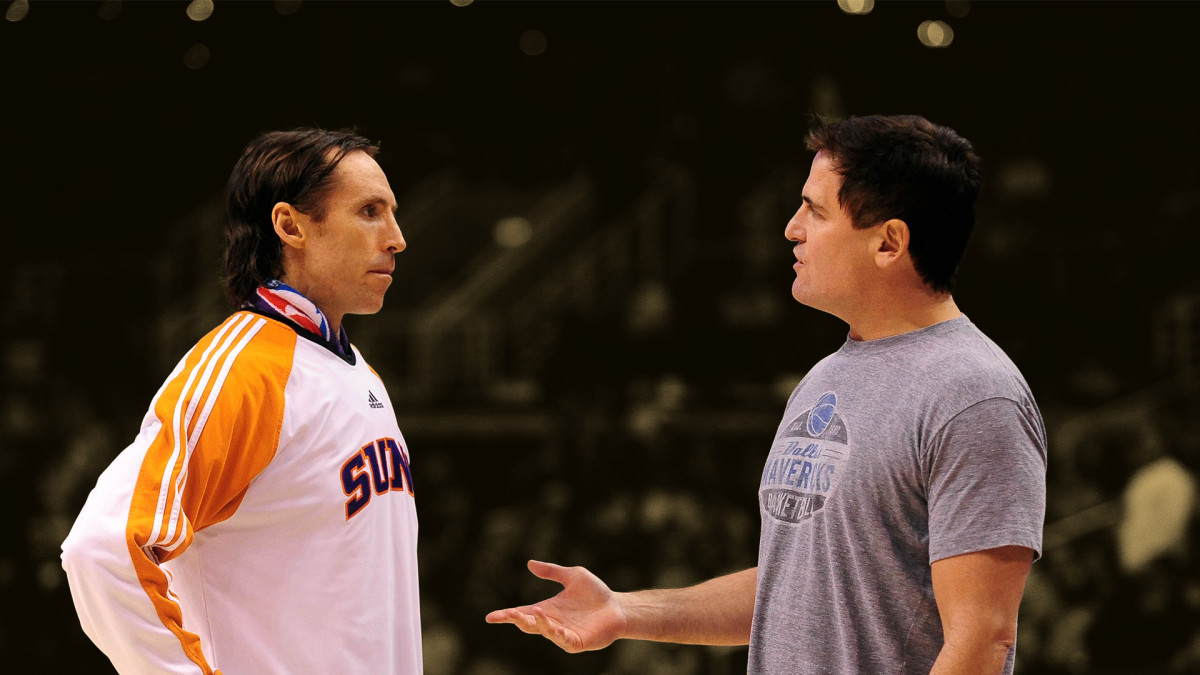
Cash not only shapes everyday existence but also significantly impacts the functioning of the NBA, particularly during contract negotiations. Monetary demands can be so contentious that they often lead to the dissolution of longstanding collaborations.
A prime example is the situation that arose involving Steve Nash and the organization. Dallas Mavericks During the 2004 off-season, despite being an incumbent all-star and a crucial team member, negotiations between him and the Mavericks hit a snag over contract details. Owner Mark Cuban subsequently mentioned that each party remained firm in their belief of what was fair and justifiable.
Steve decided to depart for financial reasons. I chose not to provide him with the monetary compensation. wrote Cuban said on his blog according to ESPN at that time.
Time to say goodbye?
When Nash joined the Mavericks in 1998, he and his buddy Dirk Nowitzki — both future Hall of Famers — quickly became the foundation of the team's transformation. The Mavs, who had struggled for years, suddenly had real hope for the future. By 2002, both players were named first-team All-Stars.
Over the next few years, "MVSteve" kept impressing with his playmaking, offensive skills, and leadership, repeatedly saying he saw Dallas as the place to finish his career. The Mavs were happy, too, and fully intended to keep their star point guard.
However, as Nash's contract approached its end after the 2003–04 season, doubts began to surface. The front office questioned whether it was wise to go all in on a 30-year-old with a history of injuries.
Even though the Canadian player was generally fit at the time, his NBA journey had been significantly impacted by previous physical challenges. As he moved into the latter part of his illustrious career, these concerns were becoming more pronounced about potential recurring injuries.
Related: Ray Allen talks about the issue of shooting too many 3-pointers, using the Boston Celtics as an example: "They gotta figure getting some easy buckets"
A final big payday
Although the Mavericks held their viewpoint, Nash naturally had his distinct one.
Given his years, the ex-Santa Clara Bronco understood this might be his final significant contract; thus, his choice wasn’t just about basketball but also heavily influenced by fiscal considerations. Cuban ,a previous technology startup founder who became a billionaire, grasped that concept more clearly than many others.
I mentioned that negotiating against ourselves and playing games was not something we wanted to do. If another team offered him a maximum-level contract, which I referred to as an exceptionally high offer, beyond the usual standards, then he would have to consider it, reflected the Pennsylvania native.
Such an offer arrived swiftly. On the opening day of free agency, the Phoenix Suns During Nash's initial two NBA seasons, his team took an ambitious step by offering a five-year contract with a sixth-year option totaling over $65 million. In contrast, the Mavericks presented a more conservative five-year proposal valued at approximately $51 million.
According to reports, Cuban, who had thoroughly weighed his options beforehand, was now confronted with an even more challenging choice: Even though he already harbored certain reservations, should he opt to match the Suns’ proposal and potentially limit resources for bolstering other areas of the roster? Or should he allow their 6'3" playmaker to depart? Ultimately, the then-66-year-old decided against matching the offer.
The journey wasn't simple for me. I understood that it wouldn’t be an easy path for those connected to, or supporting, the Mavericks, he admitted.
In the end, Mark thought back to a few days into free agency when he received a call from the legendary Canadian player. The caller did not specify the sum but mentioned there was an “amazing proposal” from the Suns. Mark agreed to this deal, and shortly afterward, the five-time assists champion became part of the team hailing from Arizona.
Related: Dirk Nowitzki urged Steve Nash to leave Dallas for Phoenix in 2004: "You have to do it"


0 Comments